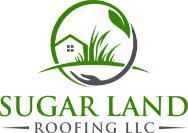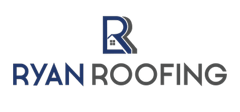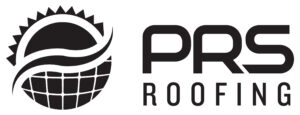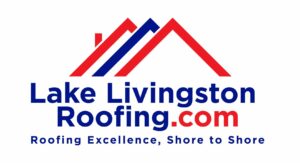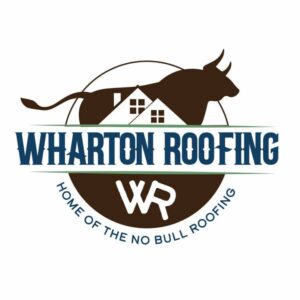SEO Services for Roofers
Search Everywhere Optimization: Dominate Google, Bing, AI, Maps & Social Media
More Clicks. More Calls.More Roofing Jobs.
60% of customers come from search results.
At Results Digital, we specialize in digital marketing for roofing companies. We focus on what matters: getting roofers found when homeowners search for roofing repair, replacement, or storm damage.
Roofing SEO That Drives Leads & Booked Jobs
Our local SEO strategies generate steady, qualified roofing leads — phone calls, web form inquiries, and booked roofing jobs — from people actively looking for roofing services in your area.
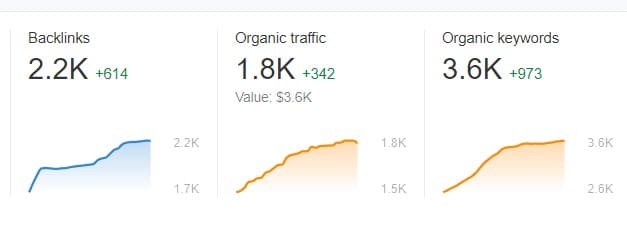

Best Roofing Search Engine Optimization Agency
What’s Included inEvery SEO Plan
Customized Service Pages to Target All your Service Areas
Optimized Bing Listings
Local Directory Citations
Helpful Blogs
Optimized Google My Business Profile
Be Seen on Google Maps
Press Releases
Optimized Website Content
More Features
Reporting Dashboard
Title Tags
Meta Descriptions
GBP Optimizations
GBP Management
GBP Posts
Backlink Audits
Link Building
Internal Linking
Data Aggregators
Local Listings
Press Releases
Keyword Research
Content Creation
Content Distribution
Schema Markup
On-page Audits
Technical Audits
Media Rooms
Search Console
Google Analytics
Comprehensive Link Building
4 Service and/or Local Pages
Everything Your Business Needs Online:Your Website, Fully Managed
Our all-in-one package gives contractors and service companies a professional, lead-focused website — complete with SEO, ad management, maintenance, and ongoing updates.
Starter
- Custom Website Design
- On-page, Off-page, Technical SEO
- Link building & Directory Citations
- Google, Bing, DuckDuckGo, Brave, & AI tools
- Mobile-Friendly & Fast Loading Site
- Lead Capture Forms
- Website Hosting & Security
- Daily Offsite Backups
- Uptime Monitoring
- Website Chat Bots
- Online Reviews Monitoring
- Google Analytics Integration
- 30 Day Money Back Guarantee
Growth
- Everything in Starter +
- Google Ads*
- Local Service Ads (LSA) Support*
- Single-Keyword Ad Groups (SKAGs) with Dedicated Landing Pages
- PPC Monitoring & Display Campaigns
- Ad Campaigns Segmented by Service & Location
- Call tracking, Form Tracking, A/B testing
- Conversion-Focused From Ad to Phone Call
Explosion
- Everything in Growth +
- Facebook Ads*
- Instagram Ads*
- YouTube Ads*
- Localized Ads That Convert
- Retargeting Campaigns & Review Requests
- Missed-Call Text-Back & Follow-Up Automations
Dominate
- Everything in Explosion +
- Tiktok Ads*
All packages include a website refresh every 36 months. We build everything up front, you pay monthly — no contracts and no surprise fees.
*Does not include ad spend with ad platform.
What Our Clients Are Saying
Get In Touch Today
Ready to grow your business?
Please pick a slot on our calendar below to schedule a free Zoom consultation.
Trusted by Leading Brands

Built for Roofing Businesses —Not for “Everyone”
If you run a roofing company, we tailor our SEO approach so your phone rings with roofing job leads every week. We know the roofing market, the keywords, and what converts roofers into trusted local brands.
Where Roofers Go to Rank #1
Results Digital proudly serves roofers across America and beyond, bringing the experience, focus, and execution your roofing business needs to grow.
Call us at (281) 975-2086 or request your free SEO audit to get started.
Ready To Grow Your Roofing Company?
Why Roofers TrustUs to Drive Growth
We Focus on Results, Not Contracts
We earn your trust every month.
No long-term contracts. No fine print.
- Cancel anytime — we stay sharp because we have to
- Proven track record with roofers in tough markets
- We work hard for your business, every single month
From 3 Crews to $60M — We’ve Done It Before
We helped Eustis Roofing grow from 3 crews to 18, building their digital dominance through laser-focused SEO, YouTube & Meta Ads, and a high-converting website.
Transparent Reporting You’ll Actually Use
No vanity metrics. Just real insights.
- See exactly how many calls, forms, and leads we’re driving
- Track ROI down to the campaign, ad group, and keyword
- Listen to your own PPC calls and review qualified leads
One Roofer Per Market — That’s Our Pledge
We partner with only one roofer per service area to get fully behind their growth.
- No conflicts of interest
- Full loyalty to your success
- We become part of your team
Explore Our Services
Trusted Digital Marketing AgencySince 2015
Website Design Services
Custom roofing websites engineered to turn visitors into booked estimates and signed contracts.
SEO Services
Secure top placement in your service area. We optimize your presence on Google Maps, organic search, and AI platforms so the right homeowners find you.
Google Ads Management
We build strategic campaigns that put you at the top of search results, delivering exclusive leads directly to your phone.
Facebook Ads Management
We use hyper-local targeting on Facebook and Instagram to put your brand in front of the right homeowners.
Have Questions?Start Here
What services does Results Digital offer?
Results Digital is America’s leading marketing agency dedicated to the trades and service industries. We specialize in custom website design, SEO, Google Ads, and Facebook Ads — all tailored to generate real, high-quality leads for commercial and residential contractors.
Why Do Service Companies Need a Professional Website?
Clients judge businesses by their website. A professional design builds trust, demonstrates your capabilities, and captures leads with strategic call forms and click-to-call features. Without one, you risk losing contracts to competitors who look more credible online.
Can You Redesign My Old Website to Generate More Leads?
Yes. We specialize in website redesign services. Whether your site is outdated, slow, or not mobile-friendly, we’ll rebuild it into a fast, SEO-optimized website that converts visitors into booked jobs and contracts.
How Does SEO Help Me Get More Leads?
SEO puts your company in front of customers searching for your specific services like “[service] near me” or “[industry] company in [your target area].” By ranking higher in search results, you get more clicks, more calls, and more revenue without relying only on paid ads
How Does Digital Marketing Help Grow My Business?
Digital marketing makes sure you’re found everywhere your prospects look — Google search, AI search, Google Maps, Facebook, Instagram, and YouTube. The result is more visibility, more leads, and a business that scales faster than the competition.
Why focus on SEO and Google Ads?
For service providers, SEO = long-term lead flow and Google Ads = immediate lead flow. Together, they make a powerful system: SEO builds consistent traffic over time, while Ads deliver instant leads right when your prospective clients needs you.
Do I Own My Website and Ad Campaigns?
Yes — we believe in ownership with transparency.
- Website Ownership: After 36 consecutive months, full ownership of your website will be transferred to you. Until then, it’s a subscription-based service we host and maintain.
- Ad accounts & assets: You own your Google Ads and Facebook Ads accounts. All ad copy, creative, and campaigns we build stay in your account.
- What’s not transferable: Proprietary SEO assets (backlinks, directory listings, schema tools) are removed, since they’re exclusive to active clients.
Do You Work with Multiple Companies in The Same Industry and Area?
No. We only work with one partner per trade in each service area. That means:
- 100% dedication to your company’s growth
- No conflict of interest with competitors
- Strategies fully aligned with your success
Once you lock in your ZIP code, it’s yours exclusively.
Is There a Contract?
No long-term contracts. Our websites run on a subscription model, and after 36 months, you own the site and all transferable assets. If you cancel earlier, ownership doesn’t transfer.

